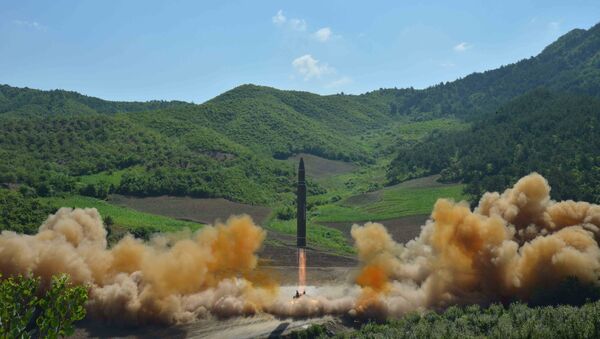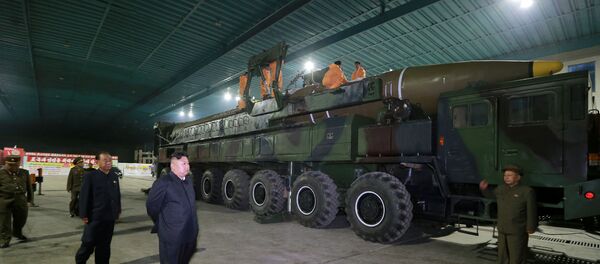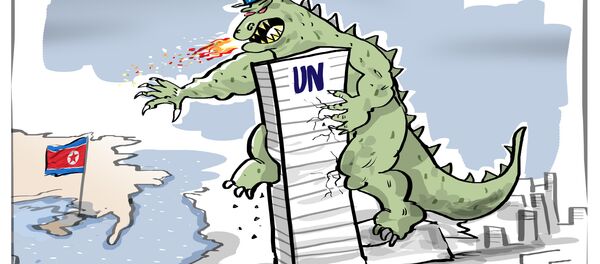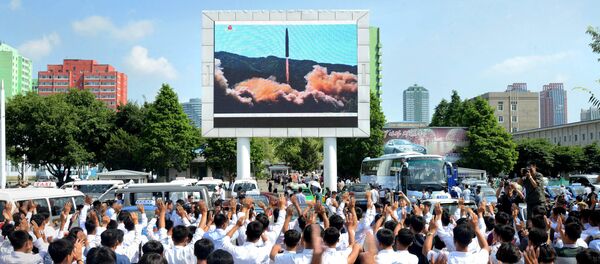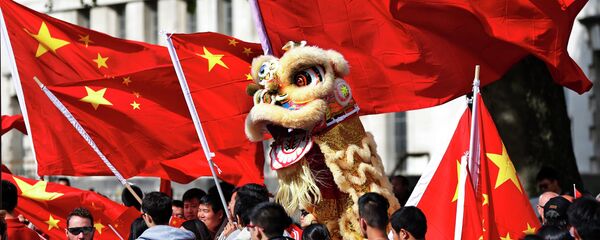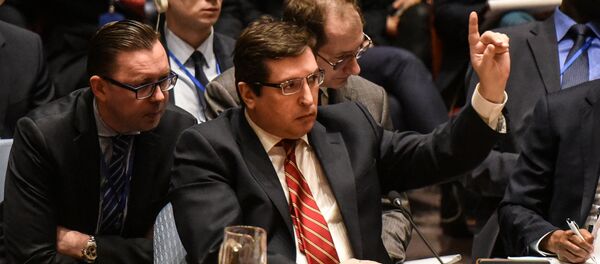US UN Ambassador Nikki Haley has warned that Washington might use its "considerable military forces" against North Korea if necessary, and called on Russia and China to cut trade ties with the Asian country.
Speaking at an emergency meeting of the UN Security Council on Wednesday, a day after North Korea carried out its first test of its new intercontinental ballistic missile, the US ambassador accused Russia and China of failing to fully implement UN-mandated sanctions, and warned that the countries wouldn't be able to maintain their trade arrangements with the US if the trade with Pyongyang didn't stop.
At the meeting, Haley proposed tightening the sanctions regime against Pyongyang, adding that the US would "go our own path" if the Security Council didn't approve the proposal. Russian officials responded by saying that a tightening of sanctions would only "lead to a dead end" in attempts to arrange a diplomatic and political settlement to the crisis. Chinese UN Ambassador Liu Jieyi called on all parties to "exercise restraint, avoid provocative actions and belligerent rhetoric, demonstrate the will for unconditional dialogue and work actively together to defuse the tension.
In addition to threats of unilateral action, including more sanctions, US officials have also warned that Washington might sanction Chinese companies, including banks, which continue to do business with North Korea.
Also Wednesday, President Donald Trump tweeted that trade between China and North Korea had grown "by almost 40%" in the first quarter of 2017. "So much for China working with us – but we had to give it a try!" he wrote.
Trade between China and North Korea grew almost 40% in the first quarter. So much for China working with us - but we had to give it a try!
— Donald J. Trump (@realDonaldTrump) 5 июля 2017 г.
Guo Yanjun, deputy director of Center for Asian Studies at the Chinese Diplomatic Academy, said that the US was deliberately distorting the facts on Chinese-North Korean trade statistics, and their relation to UN sanctions resolutions.
"Such so-called warnings are not based on objective data," the expert told Sputnik.
"It is common knowledge that for the sake of implementing UN Security Council Resolution 2321 on sanctions against North Korea, China approved and strictly enforces the list of items prohibited under the resolution from start to finish," Guo added.
China, Guo stressed, "strictly and unfailingly implements the trade embargo against Pyongyang, but it is necessary to take into account the economic situation in the country and the living conditions of North Korea's population. China's trade embargo does not affect bilateral trade which serves the spheres of vital activity of the population. Doing otherwise would lead North Korea to face a humanitarian crisis. This is a threat to China as well, and one that would be difficult to avoid."
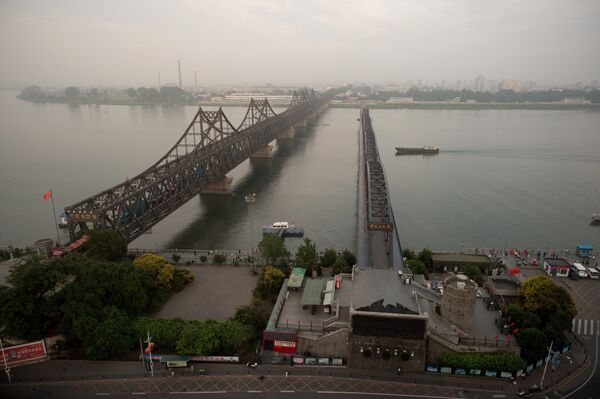
Accordingly, the analyst noted, "on the one hand, we strictly implement the resolutions of the UN Security Council; on the other, we see the warnings and accusations from the US to be unreasonable. In this regard, I would like to stress once again that we should not confuse facts with speculation."
It's "perfectly clear," the expert noted, that what the US was doing now was "only an imitation" of defense against North Korean missiles via the THAAD missile defense system. THAAD, he stressed, is ineffective, and cannot realistically defend against the group launch of North Korean missiles. Furthermore, he noted, Tuesday's test brings Pyongyang closer to being able to strike Hawaii.
"In these conditions, the US might decide on carrying out a strike to disarm North Korea. Pyongyang's response to such a decision would not be a nuclear strike against South Korea, but the deployment of special forces troops on South Korean territory. The strength of this well-trained force is at least 50,000 troops, and according to some sources 80,000. They will pass through the demilitarized zone; special tunnels have already been created for this purpose. Passing through the DMZ will not present a serious problem for them. After that, they will carry out sabotage activities in South Korean territory, destroying chemical and nuclear industries, as a result of which the possibility of life on the Korean peninsula will be put under question."
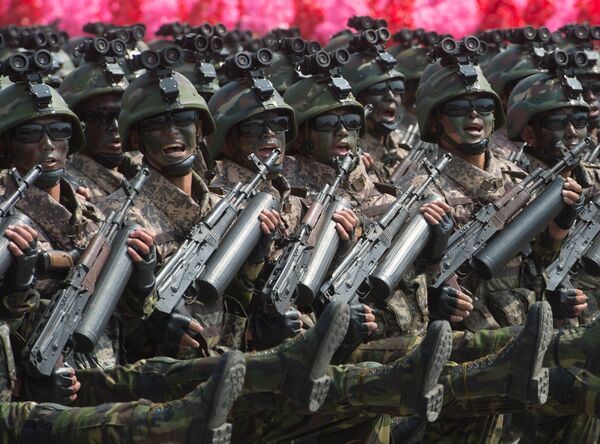
This, Evseev warned, would also "create serious environmental consequences for Russia, Japan and all other nearby states, including China. Such a scenario, unfortunately, is becoming more and more possible. It is absolutely clear that the policy of the Trump administration is not only completely hopeless, but also reckless, because it is factually leading to a war being unleashed on the Korean peninsula."
Following this week's events, Russia and China have called for an end to the belligerent rhetoric, and for practical steps to implement the join Russian-Chinese plan to address the North Korean missile and nuclear programs. At the same time, both countries have urged Pyongyang to strictly comply with the demands of UN Security Council resolutions.

